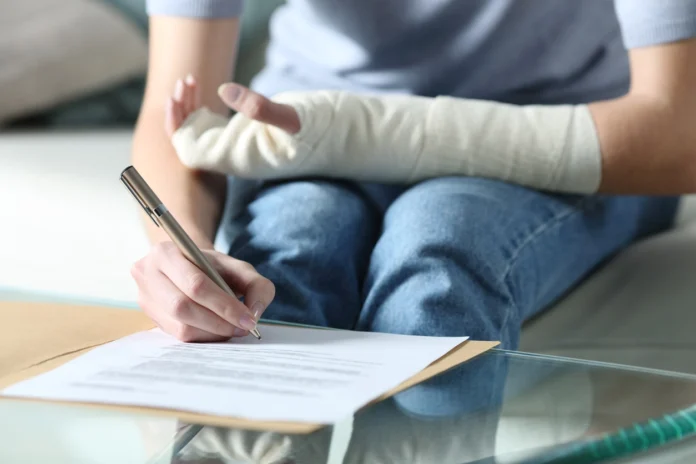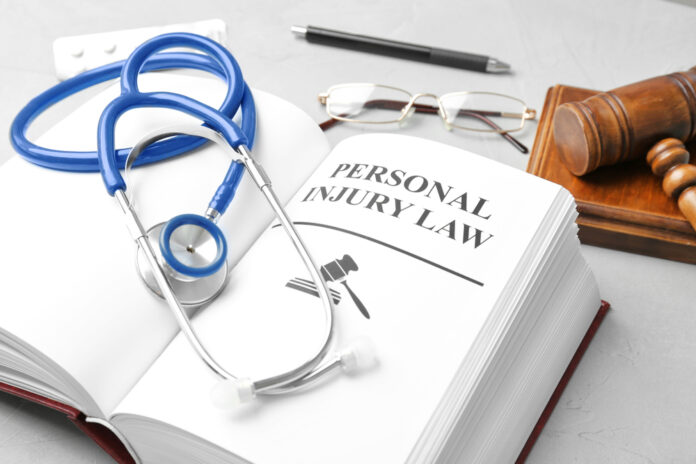Any of us could experience it suddenly. Without your fault, you get a catastrophic injury that has a lasting negative influence on your life for the upcoming few months, years, or possibly forever.
Important information regarding this scenario: You will only have one opportunity to file a claim for compensation against the at-fault person.
Finding the best lawyer to represent you is essential because California law does not allow “do-overs” in personal injury lawsuits.
The following are four critical qualities of a top personal injury attorney:
Qualities of a Good Personal Injury Lawyer

Good People and Communication Skills
Having a lawyer who can communicate well with you in formal legal contexts is essential. They are responsible for keeping you updated on the status of your case’s proceedings.
Additionally, they are responsible for effectively, professionally, persuasively, and favorably representing you to other attorneys, judges, juries, and parties.
If they don’t have good communication skills, they won’t be able to express themselves clearly, which could lead to misunderstandings or even the loss of your case.
Accurate, authentic communication and connections with others are crucial, especially if you’re coming before a jury. In a courtroom, being likable and persuasive can be pretty helpful.
Significant Experience Managing Cases Like Yours
The legal field of personal injury is extensive and includes many case types. Even if a lawyer focuses on personal injury law, they might not have much expertise in cases like yours.
This is frequently true in cases involving medical malpractice or product liability. While some attorneys often handle these matters, others might not have the resources to address these claims successfully.
Ask your lawyer about their experience handling situations comparable to yours throughout your consultation.
You should hunt for a lawyer with more relevant experience if the one you have doesn’t have much experience with similar situations.
Compassion and Empathy

Knowing that your attorney cares about you and your circumstances and is invested in the success of your case is crucial.
Understanding that they don’t view you as anything more than money or a trophy in their professional career is critical.
You want someone dedicated to your case because they understand you and isn’t just looking for a quick buck. You’ll experience more calm throughout the procedure.
A lawyer with high emotional intelligence will be able to conduct your case in a way that demonstrates empathy and care for all parties involved.
They will typically be more motivated to win the case on your behalf. They ought to be devoted to upholding your interests.
Reputation
An excellent personal injury attorney’s reputation is crucial. Client testimonials are the first thing you should consider when choosing a lawyer.
The lawyer is perfect for you if they have positive evaluations and a solid reputation.
Additionally, their website and other Internet platforms allow you to read client reviews and get additional information about them.
If you ever receive a referral to a law firm, you should remember that word-of-mouth recommendations are another potent weapon of counsel.
Signs You Have a Strong Personal Injury Claim

Personal injury law refers to legal claims arising from physical injury or emotional distress caused by another person or entity’s negligence, carelessness, recklessness, or intentional wrongdoing directed against someone else. Personal injury may also include physical damage to persons or property and economic or financial harm resulting from negligence, carelessness, or misconduct.
1. The defendant breached the duty of care
The person or entity that caused your injury had a duty of care toward you. The person or entity must have breached the duty of care that caused the injury. This breach must have been the injury’s proximate or “legal” cause. Also, you must have suffered damages due to the negligent breach.
2. Damages exist
Damages are measured by the extent of your injuries and your pain and suffering. It would be best if you documented any expenses, such as costs for medical care and prescription drugs, lost income, time missed from work or school, costs to purchase assistive devices or services, and any inconvenience you have experienced.
3. The injury occurred because of the defendant’s negligence
If someone causes your injury due to their negligence, for example, a drunk driver running a red light, that person must be held responsible for her injuries. If a surgeon makes an error during surgery, the doctor will be held liable for any damages that result from that error.
4. The defendant has breached their duty of care and caused you harm
The defendant is liable if they committed an act or omission that caused him harm. You can readily identify some acts or omissions as negligent; others may not be so obvious. For example, a person who owns a large dog that bites someone is liable. However, if a dog bites you and it belongs to your best friend, and he was not negligent in any way, you will have no claim against him.
5. You were in the zone of danger or injured at a time when you were there
To hold someone liable for your injuries, you must have been within the scope of the defendant’s negligence. You may have obtained permission from the defendant or been in the zone of danger. Your conduct is relevant as well. For example, suppose the defendant’s negligence injured you on private property. In that case, you will generally not be able to recover unless you were there at the defendant’s invitation or with its consent.
6. The injury was of a type that typically occurs in the zone of danger
You can only recover damages if the injury occurred within a zone of danger. A risk zone is around a person where a negligent act or omission could have injured them. Some types of damages are more likely to occur in the danger zone than others. For example, fractures caused by negligent automobile operation likely happen in a car accident and do not come within the danger zone.
According to the attorneys at Viñas & DeLuca, you may have a solid personal injury claim if you have been injured due to another person’s negligence. An excellent personal injury attorney should be able to help assess your claim and determine if you should file suit.










